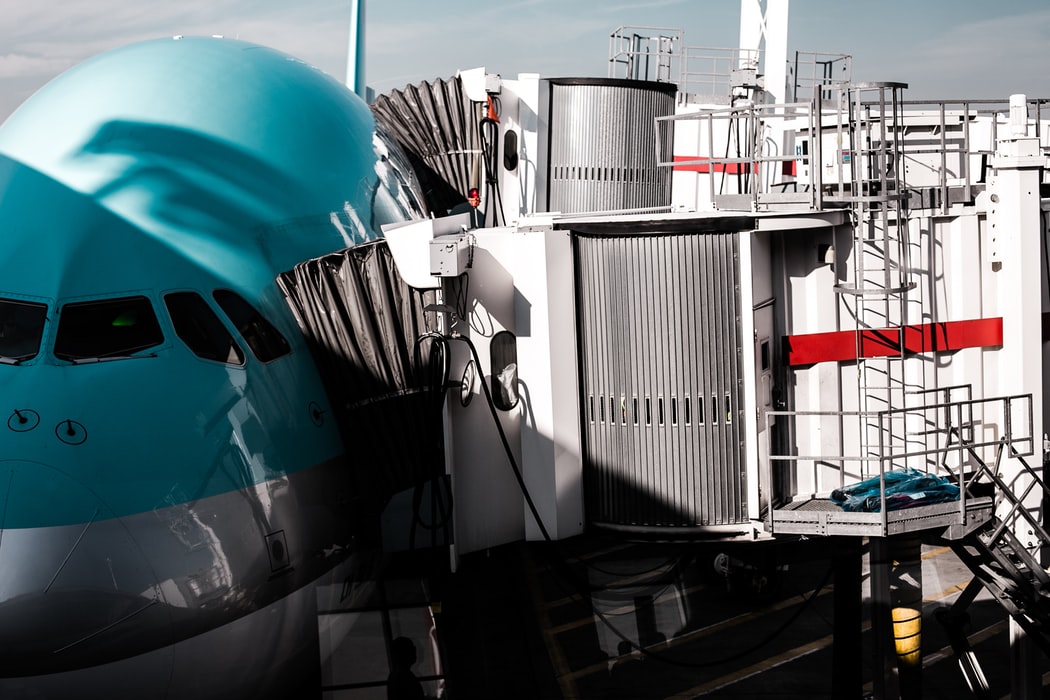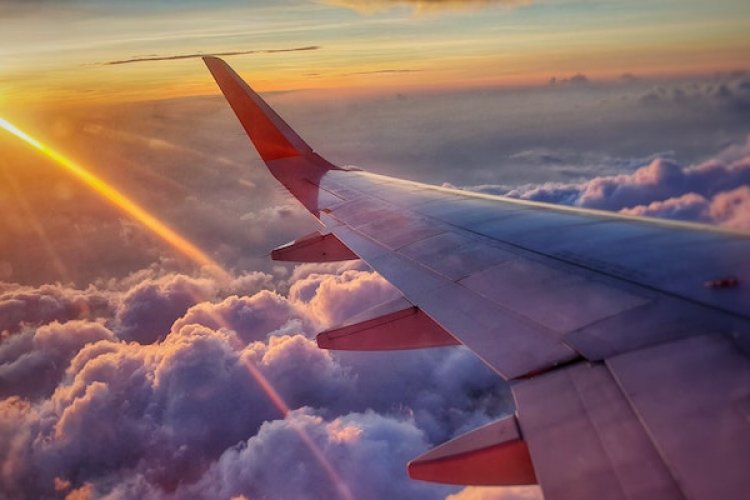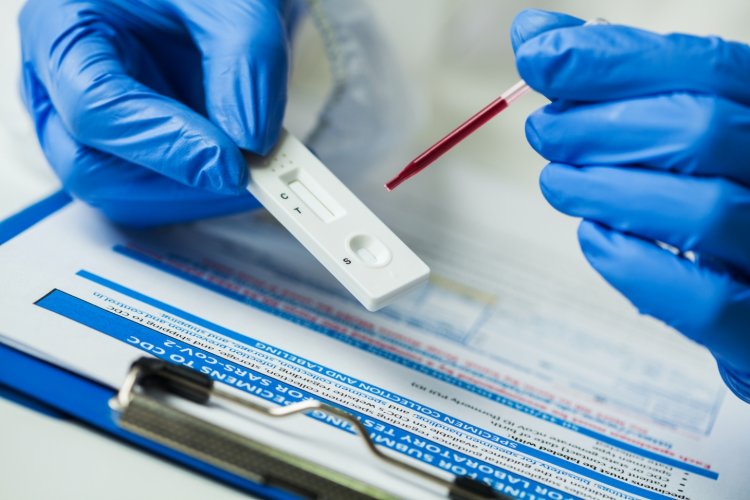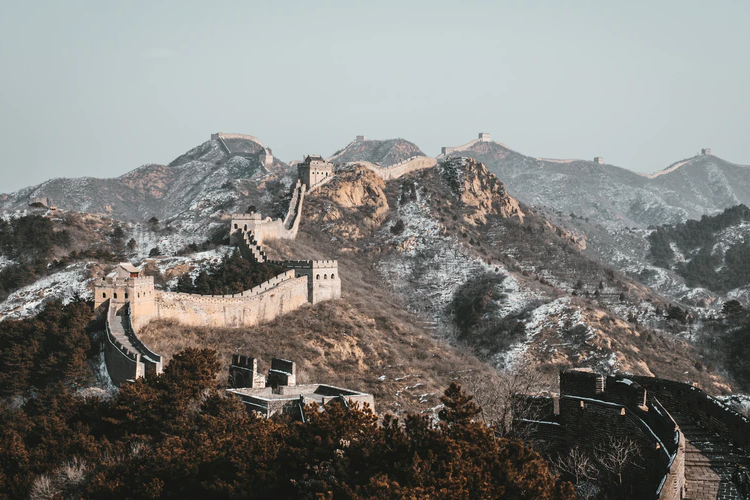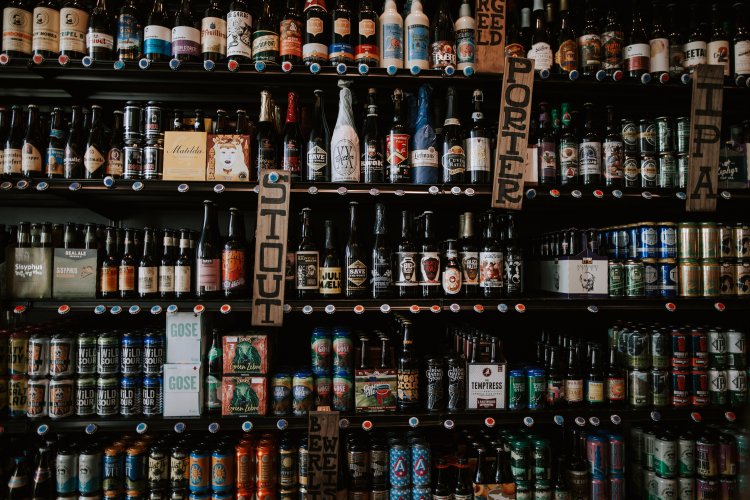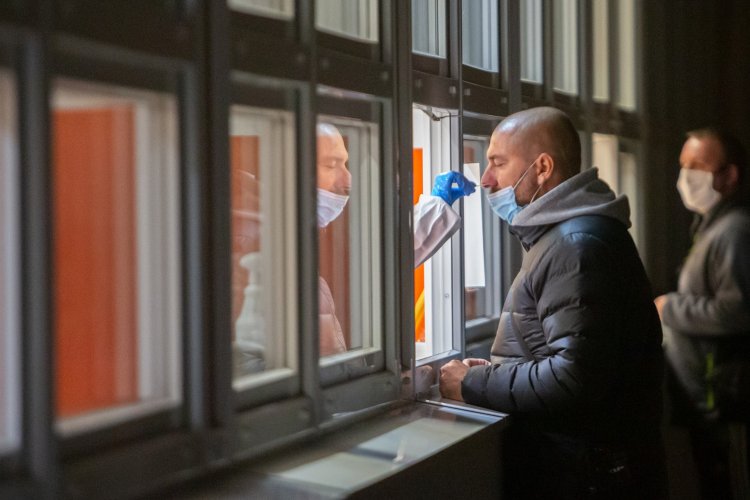China Eases Airline Restrictions, Implements New Points System for COVID-19 Control
After a tense rhetorical back-and-forth between Chinese and American officials, China will finally allow US airlines to fly to China, in addition to all other foreign airlines that had previously been restricted from flying into the country, Reuters reports. The change will be welcome news to many Chinese citizens who have been eagerly waiting to return from abroad. However, it has no effect on those foreign passport holders wanting to do the same.
The spat began after China placed heavy restrictions on international airlines, a move that the US claimed violated a bilateral agreement to allow one another's carriers to operate, according to Bloomberg. And while China has gradually eased these restrictions, allowing limited flights from several other countries to enter the territory, they had not budged on the US airline ban. In response, on Wednesday the US followed through on its threat to ban Chinese airlines.
Within hours, China announced a solution: Beginning Jun 8, it would allow flights from US airlines to enter China but will implement a points system for all international airlines in order to place the burden of COVID-19 control on the airlines themselves. The move represents a major change in the policy set forth by China’s Civil Aviation Administration (CAAC), which had up until now restricted countries to a single route into China per week, a plan that had previously been expected to continue through October.
The new system will instead allow all foreign airlines not currently flying into China to schedule a flight into one of 32 designated cities capable of handling international flights. The catch? If the airline allows five coronavirus infections to fly into China, their route(s) will be suspended for one week. That suspension extends to four weeks if the number of cases reaches ten.
Additionally, if an airline is able to keep a record of allowing zero infected cases into China for three consecutive weeks, it will be allowed to expand its routes into China.
As of yet, there is no word from the US on whether it will cancel the ban on Chinese airlines that was set to begin Jun 16, but having gotten its way, the ban is unlikely to continue.
READ: Talking Travel: Shared Scooters Condemned, Andingmen Station to Get New Entrances
Image: Alev Takil (via Unsplash)
Related stories :
Comments
New comments are displayed first.Comments
![]() hank9000
Submitted by Guest on Fri, 06/12/2020 - 05:16 Permalink
hank9000
Submitted by Guest on Fri, 06/12/2020 - 05:16 Permalink
Re: China Eases Airline Restrictions, Implements New Points...
The Asian flu pandemic starting in 1957 killed from 1-4 million, depending who you listen to. This includes about 70,000 in a U.S. that was about 1/2 of today's population.
Ahh, yes. Fox News/Steve Hilton "logic." What do you think covid19's fatality totals would look like without the drastic measures that have been put in place in most countries? Hint: covid19 is vastly more deadly than seasonal flu. Full stop. And needless to say, the economic impact of a pandemic in the highly globalized world of 2020 is a very different animal indeed from that of the late 1950s. Heck, in Eisenhower's day many/most western countries had next to no economic relations with China at all (to cite one example of that epoch's modest level of globalization), never mind the trillions in trade flows of the present era.
Moreover, we have no idea what the final body count from the curent pandemic will be, because it's far from over. (At least in countries lacking sensible governance, such as the US, Britain, Russia, Brazil etc).
Finally, most of the economic news of late shows those countries that have done the poorest job at preventing covid deaths and bringing the pandemic under control also have the worst economic outlook. South Korea's unemployment rate is now about 5%, for instance, contrasted with about 16% in the United States. In January they were at about the same level. In other words, strong policies to fight the pandemic are not in conflict with a restoration of economic growth. Rather, they're a precondition for it. Have a nice day.
![]() hank9000
Submitted by Guest on Thu, 06/11/2020 - 07:08 Permalink
hank9000
Submitted by Guest on Thu, 06/11/2020 - 07:08 Permalink
Re: China Eases Airline Restrictions, Implements New Points...
Actually my point was that the virus, while serious enough, was badly over covered.
Literally the worst pandemic in a cenury, with all that entails, including trillions USD in lost economic output (global GDP likely to decline by several percentage points in 2020), mass unemployment, etc. I guess we'll have to agree to disagree on that score.
(One can make a case for HIV/AIDS, too, but covid19 is vastly more contagious, and its spread its obviously much more rapid).
![]() xz576
Submitted by Guest on Wed, 06/10/2020 - 15:10 Permalink
xz576
Submitted by Guest on Wed, 06/10/2020 - 15:10 Permalink
Re: China Eases Airline Restrictions, Implements New Points...
Typical right-wing snowflake argument. "When I disagree with someone, I'm expressing my right to free speech; when they disagree with me, they're violating my right to free speech."
![]() WaqarOptimist
Submitted by Guest on Wed, 06/10/2020 - 14:31 Permalink
WaqarOptimist
Submitted by Guest on Wed, 06/10/2020 - 14:31 Permalink
Re: China Eases Airline Restrictions, Implements New Points...
Only yesterday I read James Altucher's thoughts about coronavirus, economy and media's role in where we are standing today. A must read, https://jamesaltucher.com/blog/economy-protests-virus
The good news: any relaxing of the rules is a move in the right direction, toward normalcy. Some day, perhaps in 2021 or 2022, we'll get there.
The bad news: it seems vanishingly unlikely, given the prevelance of Covid19 in myriad countries, that airlines will be able to avoid China's penalization scheme, at least any time soon (but by the autumn, who knows?). Will airlines somehow be able to provide real time testing with rapid turn-around that yields results four hours before takeoff? Merely showing up with a certified recent test result (even one that's only a day or two old) is obviously no guarantee a passenger hasn't subsequently become infected. Indeed, it would hardly be impossible for one to become infected in the airport itself, immediately prior to the flight.
I don't blame the PRC or any country for being hyper careful, for what it's worth. I just think we're quite a long way from reaching even a semblance of the old status quo with respect to international air travel. Which is dispiriting for those of us who are stranded. And I doubt transferring to a third party "approved" carrier is going to be an option any time soon.
Didn't you hear? The U.S. found a cure for the epidemic---it's called ignoring the inconvenience in favor of more eye-catching news, to wit the protests/riots. The editor-in-chief at CNN might win a Nobel Prize for medicine, he might.
Not exactly sure of what point you're trying to make. Are you suggersing that the media shouldn't cover a signifcant story regarding urban unrest, riots, police brutality etc in the USA? Seems to me likely that, as the protests eventually diminish, media focus will flag, too. And in any event the protests are happening in most Western countries now, so, the story isn't exclusively an American one. Indeed Chinese media seem to be fasicated, too.
Gods forbid I don't march in lockstep with opinion. In the world of tomorro---nay, later this afternoon, the lone unforgivable sin will be dissent from the approved narrative. May I suggest that such pariahs be branded with the term "Nardis"? As in dissenter from said narrative? Sort of like the new scarlet letter. Here, I'll bare my nether cheeks for the heated iron...
Actually my point was that the virus, while serious enough, was badly over covered. Even on days when nothing much happened, one got 24/7 fretting. Was nothing else happening in the world? Was non-stop hand-wringing achieving anything. Finally, was it worth throwing the economy under a bus to protect...well, people like me. Prime virus-fodder: aged sixty, high-blood pressure, etc. I think not. At the time of the Antonine Plague, Rome pushed into Armenia and Mesopotamia. We could scarce stick our (masked) noses out the apartment complex gates.
![]() hank9000
Submitted by Guest on Wed, 06/10/2020 - 05:34 Permalink
hank9000
Submitted by Guest on Wed, 06/10/2020 - 05:34 Permalink
Re: China Eases Airline Restrictions, Implements New Points...
The good news: any relaxing of the rules is a move in the right direction, toward normalcy. Some day, perhaps in 2021 or 2022, we'll get there.
The bad news: it seems vanishingly unlikely, given the prevelance of Covid19 in myriad countries, that airlines will be able to avoid China's penalization scheme, at least any time soon (but by the autumn, who knows?). Will airlines somehow be able to provide real time testing with rapid turn-around that yields results four hours before takeoff? Merely showing up with a certified recent test result (even one that's only a day or two old) is obviously no guarantee a passenger hasn't subsequently become infected. Indeed, it would hardly be impossible for one to become infected in the airport itself, immediately prior to the flight.
I don't blame the PRC or any country for being hyper careful, for what it's worth. I just think we're quite a long way from reaching even a semblance of the old status quo with respect to international air travel. Which is dispiriting for those of us who are stranded. And I doubt transferring to a third party "approved" carrier is going to be an option any time soon.
Didn't you hear? The U.S. found a cure for the epidemic---it's called ignoring the inconvenience in favor of more eye-catching news, to wit the protests/riots. The editor-in-chief at CNN might win a Nobel Prize for medicine, he might.
Not exactly sure of what point you're trying to make. Are you suggersing that the media shouldn't cover a signifcant story regarding urban unrest, riots, police brutality etc in the USA? Seems to me likely that, as the protests eventually diminish, media focus will flag, too. And in any event the protests are happening in most Western countries now, so, the story isn't exclusively an American one. Indeed Chinese media seem to be fasicated, too.
![]() hank9000
Submitted by Guest on Wed, 06/10/2020 - 05:28 Permalink
hank9000
Submitted by Guest on Wed, 06/10/2020 - 05:28 Permalink
Re: China Eases Airline Restrictions, Implements New Points...
Of course, unless the PRC lets non-Chinese in, it's hardly cost-effective for airlines to fly here. It's like letting 17 year olds buy beer as long as they don't open the bottles.
That depends partly on how many stranded Chinese there are who wish to return. It's probably a very large number, and therefore a sizable market. Also, you'd have to think if they're gradually relaxing lfight restrictions, a procedure for foreign residence permit holders will follow. After all, thousands of foriegners returned in February and March and yet China manged to successfully get the pandemic under control. My guess is late summer or auturmn, although admitedly that's just a guess.
![]() hank9000
Submitted by Guest on Mon, 06/08/2020 - 11:00 Permalink
hank9000
Submitted by Guest on Mon, 06/08/2020 - 11:00 Permalink
Re: China Eases Airline Restrictions, Implements New Points...
The good news: any relaxing of the rules is a move in the right direction, toward normalcy. Some day, perhaps in 2021 or 2022, we'll get there.
The bad news: it seems vanishingly unlikely, given the prevelance of Covid19 in myriad countries, that airlines will be able to avoid China's penalization scheme, at least any time soon (but by the autumn, who knows?). Will airlines somehow be able to provide real time testing with rapid turn-around that yields results four hours before takeoff? Merely showing up with a certified recent test result (even one that's only a day or two old) is obviously no guarantee a passenger hasn't subsequently become infected. Indeed, it would hardly be impossible for one to become infected in the airport itself, immediately prior to the flight.
I don't blame the PRC or any country for being hyper careful, for what it's worth. I just think we're quite a long way from reaching even a semblance of the old status quo with respect to international air travel. Which is dispiriting for those of us who are stranded. And I doubt transferring to a third party "approved" carrier is going to be an option any time soon.
![]() ransomsoul
Submitted by Guest on Thu, 06/04/2020 - 15:22 Permalink
ransomsoul
Submitted by Guest on Thu, 06/04/2020 - 15:22 Permalink
Re: China Eases Airline Restrictions, Implements New Points...
YES YES YES - been waiting for this! Do we already know which airlines/routes will be approved? I need to get home to my kids... it's been 140 days!!!! Thank you!
Validate your mobile phone number to post comments.

